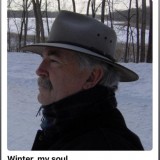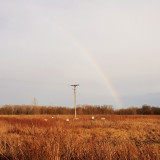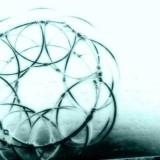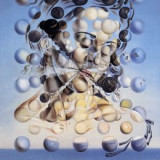What's Your Favorite Form & What Form Do You Want To Try (Co
-
Robert Gardiner
10 years agoWhat's Your Favorite Form & What Form Do You Want To Try (Conquer)?
Do you have a favorite form that you like to write in or read, and is there a form that you'd like to become better at (Conquer)?
What Are They?
I myself have worked on mastering some of the more complex forms of sonnets (with more complex rhyne schemes). There are so many sonnet variations out there. As I discover one that presents a little more of a challenge, that I find interesting, I try and attempt that sonnet and see if I can conquer the challenge and master the sonnet. -
Larry Chamberlin
10 years agoExcellent thread, Robert!
Personally, I've never found a form I did not like, although I'm best suited to short forms, such as senryu & haiku. Some years ago you actually turned me on to tankas. -
La Reina De Corazones
10 years agoI kinda am good at storytelling if that's a form, or Acrostic those I'm really good at. Hmmm things I would want to change, interesting I don't really like other forms then again I'm like a dog with a bone I'm happy and content with what I have.
-
Maple Tree
10 years agoMy favorite forms to write are; Sonnets, Quanterns and Kyrielles. Adore the Triolet, but still trying to piece them together ... I make them choppy for some reason... ha ha
I hadn't written a form I didn't like... I've only written one Ghazal years ago... so my goal is to write my second one very soon :-) -
Poet on the Piano
10 years agoUsed to write more in forms then moved to free verse and found myself opening up more. But some of my favorites that I love to go back to every so often include: the kyrielle, cinquain, nonet, tetractys and the palindrome form, which can be a tricky but creative one to tackle in my opinion!
Am completely open to new forms though. Especially if any poet was up to the challenge of creating his or her own. (Hmm... Saffie, seems like a challenge you would do!) -
Everlasting
10 years agoI love rondeau's. Shakespearean sonnet ( easiest to write). Any sort of sonnets. I love when the sonnets are well done. Specially those that execute the Volta correctly along with the meter/rhythm.
Oh but the one that I like writing the most is the sestina. That's my goal to write a sestina tht is enjoyable. I have yet to attempt to write more since Mr. Larry's contest. -
-
Robert Gardiner
10 years ago^^ I rather not employ the Volta, then employ it wrongly, so my sonnets are usually done without one. The Volta is something you have to plan for and plan to fit in to your sonnet. I just pick a direction and go. But many don't know how to properly employ The Volta Everlasting and employ it wrong.
-
Everlasting
10 years agoBut in my opinion the Volta is one of the beauties that make up the sonnets. The turn, the change of direction that the story is heading to, it just makes the sonnet to be fascinating.
Ah, it's just that a sonnet to me feels not much like a sonnet or rather incomplete, unless it has a Volta, the fourteen lines, the right rhyme scheme, and the meter/rhythm. Lol It must have everything.
But you are right, in a way, the Volta either has to be planned or the writer just has to go with the initial flow, then the change in the direction... just happens on its owns.
Though the good thing about making mistakes specially in writing is that we can learn from those mistakes.
If you don't mind me asking, which style of sonnet do you prefer writing? I have only attempted the Shakespearean and the Spenserian sonnets. But I prefer the Shakespearean because it's less strict. -
Robert Gardiner
10 years agoI just love to explore the sonnets and play with the rhyme schemes Everlasting. There are many types and variations of sonnets, with different rhyme scheme. with which all I am not quite familiar, but when I feel like doing something more than your basic English (Shakespearean) sonnet. I play with the rhyme scheme and try and do a different or alternative rhyme scheme. And often time. after writing, I research the rhyme scheme to see if there's and established sonnet with a matching rhyme scheme.
But if you want to research and get familiar with other sonnets, here are two webpage for you;
http://www.poetrybase.info/forms/005/507.shtml
http://www.thepoetsgarret.com/sonnet.html -
Larry Chamberlin
10 years agoRegarding the Volta. I suppose it's a philosopher prejudice, but for myself I've always considered a sonnet as a dialectic: the argument calls for a response, not merely a "turn" so to speak. In my own sonnets I've striven to perform the argument in the octave and the response in the sestet.
In a recent attempt to create a form I set out argument, response and resolution, thus fulfilling the dialectic. -
Robert Gardiner
10 years ago^^ Interesting view and argument on The Volta Larry
-
Everlasting
10 years agoI think that's a fair point, Mr. Larry. I also see the sonnet and the Volta to be like you described it. However, I feel that the Volta being described as a "turn" is more flexible for the writer. By this I mean, that by just saying a "turn" , the writer doesn't necessary needs to write a sonnet that introduces an argument, then follows a response to later state the resolution, but instead the writer can have the freedom of writing the sonnet as a short story while still adhering to the rules.
-
Larry Chamberlin
10 years agoAbsolutely, Luce. My observation is in reference to my own predilection, not as an assertion as to what others should do.
Of course the Volta covers much more than sonnets. The most common form poems have this device. It is even mandatory for the haiku & senryu &, in my belief, the tanka as well.
In fact, I think any good poem has this turn in it as a means of setting up the reader to suddenly see some aspect of reality in a new light. You cannot appreciate the new perspective unless you are immersed in the old one. I think the absolute best poems, forms or not, engage the reader in some degree of paradigm shift. -
Everlasting
10 years agoHigh Five! Mr. Larry






